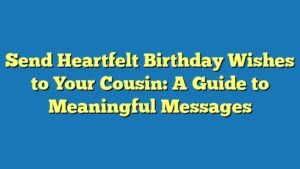Wedding wishes messages Jewish, also known as Jewish wedding blessings, are traditional expressions of joy, love, and support offered to a newly married Jewish couple. For example, one common blessing is “Mazel tov,” which means “good luck” and is often used to wish the couple a lifetime of happiness together.
These blessings hold great significance in Jewish culture, as they reflect the importance of marriage and the desire for the couple to build a strong and lasting relationship. They have been passed down through generations and continue to be an integral part of Jewish wedding ceremonies.
In this article, we will explore the various types of Jewish wedding wishes messages, their meanings, and how they are used to celebrate and honor the newlyweds.
Wedding Wishes Messages Jewish
Wedding wishes messages Jewish are an essential part of Jewish wedding ceremonies, expressing joy, love, and support for the newly married couple. These messages hold great significance in Jewish culture, reflecting the importance of marriage and the desire for the couple to build a strong and lasting relationship.
- Mazel tov: Good luck
- Siman tov: Sign of good luck
- L’chaim: To life
- B’sha’ah tovah: At a good hour
- Ad meah v’esrim: Until 120 (years)
- Shehecheyanu: Who has kept us alive
- Birkat Hamazon: Grace after meals
- Mi shebeirach: May the One who blessed
These key aspects of Jewish wedding wishes messages reflect the importance of joy, love, and support in Jewish culture. They are used to bless the couple with good luck, happiness, and a long and fulfilling life together.
Mazel tov
Mazel tov is a traditional Jewish expression of congratulations and good wishes, often used at weddings. It is a way to wish the newlyweds a lifetime of happiness, health, and prosperity. Mazel tov can be said in many different ways, and there are many different customs and traditions associated with it.
- Traditional wording: The most common way to say mazel tov is simply “Mazel tov!” However, there are many other variations, such as “Mazel tov on your wedding day” or “Mazel tov to the happy couple.”
- Customs and traditions: There are many different customs and traditions associated with mazel tov. For example, it is common to give the newlyweds a gift of money or a gift certificate to a store. It is also common to raise a glass of wine or champagne and toast to the couple’s happiness.
- Meaning and significance: Mazel tov is a meaningful and significant expression of congratulations and good wishes. It is a way to show the newlyweds that you are happy for them and that you wish them all the best in their new life together.
- Examples of use: Mazel tov can be used in many different situations. It is most commonly used at weddings, but it can also be used to congratulate someone on a new job, a new baby, or any other happy occasion.
Mazel tov is a beautiful and meaningful way to express your congratulations and good wishes to the newlyweds. It is a tradition that has been passed down for generations, and it continues to be an important part of Jewish culture today.
Siman tov
Siman tov, meaning “sign of good luck” in Hebrew, holds a significant connection to wedding wishes messages Jewish. It is believed that certain actions or events can bring good fortune to the newlyweds, and these are often incorporated into Jewish wedding traditions and blessings.
One common siman tov is the breaking of a glass at the end of the wedding ceremony. This symbolizes the destruction of the Temple in Jerusalem and the hope for its future rebuilding. It is also seen as a way to ward off evil spirits and bring good luck to the couple.
Another siman tov is the eating of sweet foods at the wedding reception. This symbolizes the hope for a sweet and happy life together. Honey is a particularly popular food choice, as it is seen as a symbol of fertility and abundance.
Siman tov can also be found in the wedding wishes messages Jewish that guests offer to the newlyweds. For example, guests may wish the couple “mazel tov” (good luck), “l’chaim” (to life), or “ad meah v’esrim” (until 120 years). These wishes are all rooted in the hope for the couple’s happiness, health, and prosperity.
The incorporation of siman tov into wedding wishes messages Jewish is a beautiful way to express the hope for a bright and happy future for the newlyweds. These traditions and blessings are an important part of Jewish culture, and they continue to be passed down from generation to generation.
L’chaim
L’chaim, meaning “to life” in Hebrew, is a common toast and blessing in Jewish culture. It is often used at weddings, along with other wedding wishes messages Jewish, to express joy, happiness, and well wishes for the newlyweds.
L’chaim is a critical component of wedding wishes messages Jewish because it encapsulates the hope and aspiration for a long, happy, and fulfilling life together for the couple. It is a way to wish them all the best in their new journey as husband and wife.
Real-life examples of l’chaim within wedding wishes messages Jewish include:
- “Mazel tov to the happy couple! May you have a lifetime of happiness, health, and prosperity. L’chaim!”
- “To the newlyweds, may your love for each other grow stronger with each passing day. L’chaim!”
- “Congratulations on your wedding day! May you build a beautiful life together, filled with love, laughter, and joy. L’chaim!”
The practical significance of understanding the connection between l’chaim and wedding wishes messages Jewish is that it allows us to appreciate the depth and meaning behind these traditional blessings. It also helps us to understand the importance of celebrating and honoring the new chapter in the couple’s lives.
In conclusion, l’chaim is an essential part of wedding wishes messages Jewish, as it expresses the hope and well wishes for a long, happy, and fulfilling life together for the newlyweds. It is a beautiful and meaningful tradition that continues to be an important part of Jewish weddings today.
B’sha’ah tovah
In the context of wedding wishes messages jewish, “B’sha’ah tovah” ( ), meaning “at a good hour” in Hebrew, holds significant importance and is often used as a blessing for the newlyweds.
This blessing stems from the belief in auspicious moments and the desire for the couple to embark on their new life together at an opportune time. It is believed that by uttering these words, well-wishers invoke divine favor and protection upon the couple, ensuring that their union is blessed with happiness, prosperity, and longevity.
Real-life examples of “B’sha’ah tovah” within wedding wishes messages jewish include:
- “Mazel tov to the happy couple! May you have a lifetime of happiness, health, and prosperity. B’sha’ah tovah!”
- “To the newlyweds, may your love for each other grow stronger with each passing day. May all your endeavors be blessed with success. B’sha’ah tovah!”
- “Congratulations on your wedding day! May you build a beautiful life together, filled with love, laughter, and joy. May your union be blessed with an abundance of blessings. B’sha’ah tovah!”
Understanding the connection between “B’sha’ah tovah” and wedding wishes messages jewish allows us to appreciate the depth and meaning behind this traditional blessing. It highlights the importance of seeking divine favor and protection for the newlyweds as they embark on their new journey together.
Ad meah v’esrim
Within the realm of wedding wishes messages jewish, “Ad meah v’esrim: Until 120 (years)” holds immense significance, embodying the heartfelt desire for the newlyweds to enjoy a long, fulfilling, and blessed life together.
- Longevity and Health: This blessing expresses the hope that the couple will live long and healthy lives, filled with vitality and happiness.
- Scriptural Roots: The phrase “Ad meah v’esrim” finds its roots in the biblical verse “May your days be as many as the days of the heavens above the earth” (Deuteronomy 11:21).
- Divine Blessing: By uttering these words, well-wishers invoke divine favor and protection, asking for God’s blessings upon the couple’s union.
- Symbolism of 120: The number 120 holds symbolic significance in Jewish tradition, representing completeness and the fullness of life.
In essence, “Ad meah v’esrim: Until 120 (years)” serves as a powerful expression of love, hope, and well wishes for the newlyweds, encapsulating the desire for their marriage to be filled with love, joy, and divine blessings for a lifetime.
Shehecheyanu
Within the realm of wedding wishes messages jewish, “Shehecheyanu: Who has kept us alive” holds a significant place, expressing gratitude for the gift of life and the opportunity to witness and celebrate the joyous union of two souls.
- Thanksgiving and Recognition: This blessing acknowledges the divine presence and expresses gratitude for the privilege of being present at the wedding celebration, recognizing the significance of the occasion.
- Celebration of Life: “Shehecheyanu” underscores the importance of celebrating life’s milestones, honoring the couple’s journey, and invoking blessings for their future happiness.
- Hope and Aspiration: This blessing conveys the well-wishers’ aspirations for the couple’s continued well-being, happiness, and fulfillment in their new life together.
- Continuity and Tradition: By reciting “Shehecheyanu,” guests connect the wedding to Jewish traditions and customs, emphasizing the continuity and strength of the Jewish community.
In summary, “Shehecheyanu: Who has kept us alive” serves as a heartfelt expression of gratitude, celebration, and well wishes for the newlyweds. It reflects the Jewish values of joy, community, and the importance of honoring life’s significant moments.
Birkat Hamazon
Within the context of “wedding wishes messages jewish,” “Birkat Hamazon: Grace after meals” holds a special place, embodying the values of gratitude, celebration, and divine blessing.
- Gratitude and Thanksgiving: “Birkat Hamazon” allows guests to express their gratitude to God for the sustenance provided, fostering a sense of appreciation and abundance at the wedding celebration.
- Celebration and Joy: Reciting “Birkat Hamazon” after the wedding feast symbolizes the joy and happiness of the occasion, invoking blessings for the couple’s future together.
- Divine Blessing: By uttering these words, guests invoke divine favor and protection upon the newlyweds, asking for God’s blessings upon their union and future endeavors.
- Community and Tradition: “Birkat Hamazon” connects the wedding to Jewish traditions and customs, emphasizing the continuity and strength of the Jewish community.
In summary, “Birkat Hamazon: Grace after meals” serves as a multifaceted expression of gratitude, celebration, and well wishes for the newlyweds. It reflects the Jewish values of joy, community, and the importance of honoring life’s significant moments.
Mi shebeirach
Within the realm of “wedding wishes messages jewish,” “Mi shebeirach: May the One who blessed” holds a significant place, as it expresses heartfelt prayers and blessings for the newlyweds, invoking divine favor and protection upon their union.
- Divine Invocation: “Mi shebeirach” begins by invoking the divine presence, recognizing the Almighty as the source of blessings and well-being.
- Patriarchal Blessings: The blessing draws inspiration from the blessings bestowed by the biblical patriarchs, Abraham, Isaac, and Jacob, upon their children and descendants.
- Intercession and Protection: By reciting “Mi shebeirach,” guests intercede on behalf of the newlyweds, asking for God’s protection, guidance, and support throughout their lives together.
- Hope and Aspiration: The blessing expresses the well-wishers’ hopes and aspirations for the couple’s happiness, prosperity, and fulfillment in their new life together.
In summary, “Mi shebeirach: May the One who blessed” serves as a powerful expression of divine invocation, patriarchal blessings, intercession, and well wishes for the newlyweds. It reflects the Jewish values of faith, community, and the importance of seeking divine favor and protection in all aspects of life.
Wedding Wishes Messages Jewish FAQs
This section addresses frequently asked questions (FAQs) about wedding wishes messages jewish, providing insights and clarifying aspects related to this topic.
Question 1: What is the significance of “Mazel tov” in Jewish wedding wishes?
Answer: “Mazel tov” is a traditional Jewish expression of congratulations and well wishes, commonly used at weddings to convey joy, happiness, and good fortune for the newlyweds.
These FAQs provide a concise overview of key aspects surrounding wedding wishes messages jewish. Understanding these messages and their significance allows individuals to convey heartfelt blessings and well wishes to newlyweds, honoring Jewish traditions and values.
In the next section, we will delve into the historical evolution of Jewish wedding wishes, exploring how these messages have adapted and transformed over time.
Wedding Wishes Messages Jewish
Incorporating Jewish wedding wishes and blessings into your messages can add a meaningful touch to the celebration. Here are some tips to help you craft heartfelt and authentic well wishes:
Tip 1: Use traditional Hebrew phrases: Include phrases like “Mazel tov,” “Siman tov,” and “L’chaim” to convey joy, good fortune, and a.
Tip 2: Personalize your message: Tailor your wishes to the couple’s unique qualities and relationship. Share a special memory or express your admiration for their love and commitment.
Tip 3: Keep it concise: While you want to express your heartfelt sentiments, brevity is key. Aim for a message that is meaningful yet easy to read and remember.
Tip 4: Offer blessings for the future: Wish the couple happiness, health, prosperity, and a lifetime of love and companionship.
Tip 5: Consider Jewish values: Reflect on Jewish values such as family, community, and tradition when crafting your message.
Tip 6: Respect the couple’s beliefs: If you are not familiar with Jewish customs, it’s important to be respectful and avoid using phrases or references that may be unfamiliar or offensive.
Tip 7: Practice your pronunciation: If you plan to say your wishes aloud, take some time to practice pronouncing the Hebrew phrases correctly.
Tip 8: Write from the heart: Most importantly, let your words come from a place of genuine joy and well wishes for the newlyweds.
By following these tips, you can create meaningful and memorable wedding wishes messages jewish that will be cherished by the couple for years to come.
In the concluding section, we will explore the evolution of Jewish wedding wishes, tracing their historical roots and transformations over time.
Conclusion
Wedding wishes messages jewish offer a glimpse into the rich cultural traditions and heartfelt sentiments surrounding marriage within the Jewish faith. These messages, rooted in ancient blessings and prayers, have evolved over time to reflect the changing societal and cultural landscapes while preserving their core essence of joy, well wishes, and divine favor.
Throughout history, Jewish wedding wishes have served as a bridge between the past and the present, connecting newlyweds to their heritage and inspiring them to build a bright and fulfilling future together. As we continue to explore and appreciate the significance of these messages, let us embrace their timeless wisdom and strive to create a world where love, joy, and blessings abound.









Tips for Using "Template by Kevin Crafts" Comments for Meaningful Online Discussions